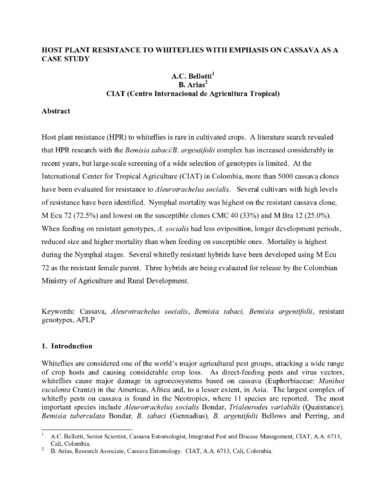Host plant resistance to whiteflies with emphasis on cassava as a case study
Host plant resistance (HPR) to whiteflies is rare in cultivated crops. A literature search revealed that HPR research with the Bemisia tabaci/Bemisia argentifolii complex has increased considerably in recent years, but large-scale screening of a wide selection of genotypes is limited. At the International Center for Tropical Agriculture in Colombia, more than 5000 cassava clones have been evaluated for resistance to Aleurotrachelus socialis. Several cultivars with high levels of resistance have been identified. Nymphal mortality was highest on the resistant cassava clone, M Ecu 72 (72.5%) and lowest on the susceptible clones CMC 40 (33%) and M Bra 12 (25.0%). When feeding on resistant genotypes, A. socialis had less oviposition, longer development periods, reduced size and higher mortality than when feeding on susceptible ones. Mortality is highest during the nymphal stages. Several whitefly resistant hybrids have been developed using M Ecu 72 as the resistant female parent. Three hybrids are being evaluated for release by the Colombian Ministry of Agriculture and Rural Development.

